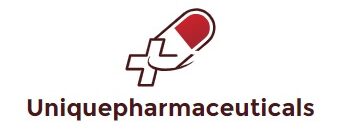Charles Bonnet syndrome triggers an individual whose vision has actually begun to weaken to see things that aren’t genuine (hallucinations). The hallucinations might be easy patterns, or in-depth pictures of occasions, individuals or locations. They’re just visual and do not include hearing things or any other experiences.
Table of Contents
About Charles Bonnet syndrome
It’s essential to be mindful that hallucinations connected with Charles Bonnet syndrome are brought on by stopping working vision. They’re not brought on by a psychological health issue or dementia.
People with Charles Bonnet syndrome are normally mindful that the visions aren’t genuine, even if they’re brilliant. Always see your GP if you’re experiencing hallucinations so they can examine the cause.
Types of Hallucination
There are 2 primary kinds of hallucination that individuals with Charles Bonnet syndrome tend to experience.
They might see:
- easy duplicated patterns
- complicated pictures of individuals, items or landscapes
Simple duplicated patterns can take the kind of grids, shapes or lines, which can appear in intense or brilliant colours. The patterns might lay throughout or cover whatever the individual sees. More complicated hallucinations can include individuals, locations, animals and pests. Most individuals do not see hallucinations of individuals they understand or previous occasions they have actually experienced.
The hallucinations aren’t normally undesirable or threatening, however might be a little frightening when initially experienced. They can often take place out of the blue, and can last for a couple of minutes or a number of hours. They might be moving or fixed.
Who’s impacted and why?
- Charles Bonnet syndrome impacts individuals who have actually lost most or all of their vision.
- It’s most likely to take place if vision loss impacts both eyes.
- According to the Macular Society, as much as half of all individuals with macular degeneration, a progressive loss of main vision, might experience Charles Bonnet hallucinations at a long time.
- It’s believed there are more than 100,000 cases in the UK.
- People of any age can be impacted by Charles Bonnet hallucinations, however they tend to take place later on in life after an individual begins to lose their sight.
- The hallucinations typically start when an individual’s sight all of a sudden weakens.
- The primary reason for Charles Bonnet syndrome is believed to be vision loss and how the brain responds to it.
- It’s unclear how loss of vision results in hallucinations, however research study is starting to assist us much better comprehend the relationship in between the eyes and the brain.
- When an individual begins to lose their sight, their brain does not get as much info as it utilized to.
- It’s believed the brain often reacts by filling out the spaces with dream patterns or images that it’s saved.
- These saved images are experienced as hallucinations.
What impact can hallucinations have?
Visual hallucinations are a regular action the brain needs to the loss of vision. But as Charles Bonnet syndrome isn’t commonly understood, lots of people stress over what it suggests and fear they might be establishing a major psychological health issue or dementia. It can likewise trigger useful issues. People who see complicated hallucinations might discover it hard to navigate.
Streets and spaces might be misshaped, and brickwork or fencing might appear straight in front of you, making it hard to evaluate precisely where you are and whether you can stroll directly ahead. Some individuals can conquer this issue by having great understanding of their environments.
Complex hallucinations can be disturbing. Although the visions might not be frightening, it can be troubling to all of a sudden see complete strangers in your house or garden. The hallucinations typically enhance with time, with episodes ending up being much shorter and less regular.
Recent proof recommends many people will still have periodic hallucinations 5 years or more after they initially began. If the hallucinations do stop completely, there’s constantly a possibility they’ll come back after a more decrease in vision.
Diagnosing Charles Bonnet Syndrome
There isn’t a particular test for Charles Bonnet syndrome.
Doctors identify it by:
- speaking with the individual about their signs
- taking a comprehensive case history
- sometimes, performing tests to dismiss other possible reasons for hallucinations, such as Alzheimer’s illness
If an individual has vision loss and they’re experiencing easy or complicated hallucinations and do not have indications of dementia or mental disorder, they most likely have Charles Bonnet syndrome.
Treating Charles Bonnet syndrome
There’s presently no treatment for Charles Bonnet syndrome.
Simply understanding that the hallucinations are a regular effect of vision loss, instead of a psychological health issue, can be really comforting and assist the individual cope much better. No particular medication has actually been revealed to stop hallucinations brought on by Charles Bonnet syndrome.
Some medications created to deal with epilepsy, Parkinson’s illness and dementia have actually shown reliable for some individuals. But these effective medications can have major adverse effects and are for that reason just advised for individuals who are badly impacted and under close guidance.
Self- aid procedures
There are some things you might attempt yourself to assist eliminate your hallucinations when you experience them.
For example, when a hallucination begins, you might:
- alter the lighting conditions to see if it vanishes– if you remain in a poorly lit location, turn on more lights or relocate to someplace that’s brighter; if you remain in a vibrantly lit location, make it dimmer
- move your eyes from delegated right — do this when every 2nd 15 times without moving your head, then stop briefly for a couple of seconds and repeat; it deserves attempting this as much as 4 or 5 times
- look at the image and blink quickly or connect to touch the vision– attempt this for a couple of seconds
- move or carry out a job — for instance, get up to make a cup of tea
- ensure you’re well rested and are getting sufficient sleep during the night– the hallucinations might be even worse when you’re exhausted or stressed out
Some individuals conquer their worry by learning more about the figures in their visions.
For example, one male with Charles Bonnet syndrome has explained how when he awakens in the early morning, he states, “Right, what have you got in shop for me today?” to the figures he’s seeing. This permits him to have some control over the method he feels about his visions.
Help and assistance
Talking
If you have Charles Bonnet syndrome, speaking about your hallucinations and how they make you feel might assist you cope much better.
- You might attempt speaking with your household, pals, GP, optician or eye doctor.
- Mental health experts, such as counsellors, psychologists or psychiatrists, might likewise have the ability to assist if you’re discovering the hallucinations especially distressing.
- Although Charles Bonnet syndrome isn’t a psychological health condition, numerous psychological health experts have experience of assisting individuals pertain to terms with hallucinations.
- Your GP ought to have the ability to refer you to your regional psychological health group.
Read more about counselling and psychotherapy.
Support groups
There aren’t numerous particular support system and online forums for individuals impacted by Charles Bonnet syndrome, however there are great deals of support system for individuals with vision loss.
- The Macular Society can put you in touch with somebody with Charles Bonnet syndrome who’s likewise knowledgeable visual hallucinations for assistance and peace of mind.
- Esme’s Umbrella, an awareness project for Charles Bonnet syndrome, has a site with links to info and handy resources for both clients and health care experts.
- The Royal National Institute of Blind People (RNIB) has more info and recommendations about Charles Bonnet syndrome.

